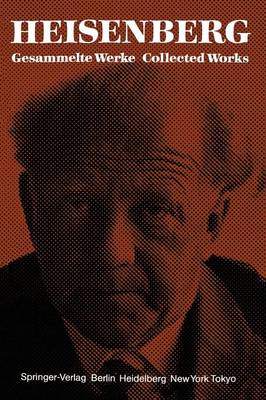Werner Heisenberg is one of the greatest scientists of our century. His work extends over a period of fifty years, ranging from turbulence theory, the establishment of quantum mechanics, its fundamental applications in atomic and solid state physics, to the theory of cosmic ray phenomena and of elementary particles. He recognized early the epistemological significance of the new discoveries. He was able to place the radical changes in the foundation of physics of this century in the historical context of natural philosophy. His thoughts on language as the medium to grasp scientific truth, artistic truth, religious truth, truth in general, reached many auditors and readers, scientists as well as non-scientists. In the 75 years of his life the political and social structure of his home country, of Europe and the world over underwent drastic changes.
He grew up in Imperial Germany, made his great contributions to quantum mechanics during the period of the Weimar Republic and was engaged in nuclear physics when the potentates of the Third Reich tried to discredit relativity and quantum theory as "degenerate" science; in World War II he participated in the German effort to develop a nuclear reactor. After the war, he devoted himself mainly to the physics of elementary particles. In addition, he acted in many official capacities: for the promotion of research, the reconstruction of science in the Federal Republic of Germany, and the advancement of international collabora- tion.
- ISBN10 3642649009
- ISBN13 9783642649004
- Publish Date 10 November 2011 (first published 1 October 1985)
- Publish Status Active
- Publish Country DE
- Publisher Springer-Verlag Berlin and Heidelberg GmbH & Co. KG
- Imprint Springer-Verlag Berlin and Heidelberg GmbH & Co. K
- Edition Softcover reprint of the original 1st ed. 1985
- Format Paperback
- Pages 634
- Language German
